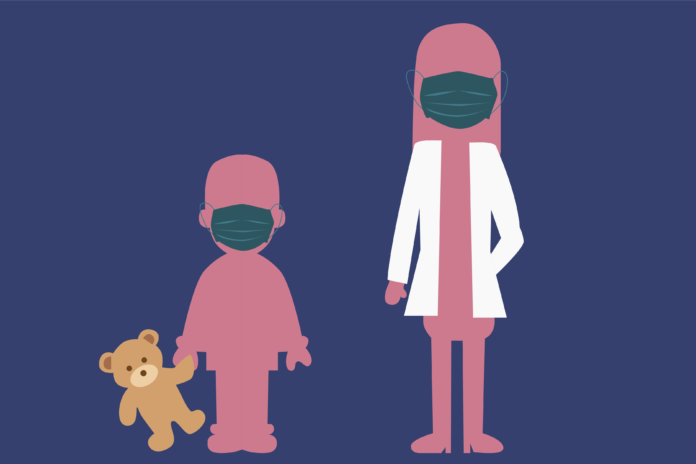Nonprofits adapt to help children during pandemic, receive support from community
The COVID-19 pandemic has affected numerous lives in the Davis community, resulting in an increased demand for services provided by nonprofits. Local organizations such as Yolo Crisis Nursery, Winters Farm to School and Progress Ranch have continued to provide services, but changed their models to suit shifting needs.
Yolo Crisis Nursery offers to “provide safe, temporary care for children up through age 5,” its official website reads.
Executive director of Yolo Crisis Nursery Heather Sleuter noted how the need for services like Yolo Crisis Nursery grew during the pandemic.
“We got a shift in the need of the Crisis Nursery when the pandemic hit,” Sleuter said. “Families were losing their jobs, daycares were closing and essential workers were needing to go to work but didn’t have anywhere to put their kids.”
Yolo Crisis Nursery began to see different types of needs from families, some more extreme than before the pandemic. They took in babies born to families who had contracted COVID-19 or had other COVID-related issues. She also explained that Yolo Crisis Nursery would do anything and everything they could to support families such as “giving them resources, referrals—anything that they’re needing for security.”
Despite financial difficulties, Sleuter emphasized the importance of nonprofits to the community.
“We’re here for the children and the families in our community during this really hard time,” Sleuter said. “The Crisis Nursery will continue to stay open and serve all children and families in Yolo County and our community.”
Winters Farm to School is “dedicated to improving the health and long-term well-being of students in the Winters Joint Unified School District,” its official website reads.
Cathy Olsen, the treasurer of Winters Farm to School and food service director of Winters School District, explained how the Winters Farm to School program began when she took inspiration from a similar program in Davis.
“I saw that Davis has a great farm to school program and thought Winters should have one as well,” Olsen said. “We put out the call for the community if they were interested in it, and we had a great response.”
Olsen described the three main services offered by Winters Farm to School before the pandemic: locally-purchased farm produce, an open summer feeding program and a school garden that allowed for garden-based learning.
Additionally, they partnered with Yolo Food Bank to set up a farmer’s market for kids. Large bins of produce would be delivered once a week and a coordinator would then distribute the produce with the help of volunteers. The kids would receive fake money and a shopping bag to “buy” produce for their family.
Although campuses remain closed, the school lunch program has continued to provide meal assistance to children via drive-through. Since the pandemic began, Winters Farm to School served about 3,500 meals a week and 80,000 meals in total.
In regards to the future of Winters Farm to School, Olsen expressed hope that the program will continue because of support from the community.
“If our supporters continue to provide the support, we’ll be able to continue our work,” Olsen said. “I think the support of a nonprofit for a community like this has changed the health of the community.”
Progress Ranch, a Davis-based nonprofit, provides “high quality mental health services to boys ages 6-14 who […] are unable to function in a normal home environment,” its official website reads.
Wendi Counta, the executive director of Progress Ranch, explained how Progress Ranch housed six boys in two different houses, and that most of the boys had been in the foster care system for a while. Due to COVID-19, family visits and time spent outside became limited. The boys struggled with the transition to spending most of their time inside.
“It’s had a huge impact on their mental health, which is already difficult for them,” Counta said. “They’re with us because of mental health issues so this just compounds it even more.”
Before the COVID-19 pandemic, Progress Ranch took several precautions against common medical ailments such as the common cold or flu. Now, Counta described the need to take even further precautions by investing in more personal protective equipment (PPE) because they wanted to ensure that both the kids and the staff felt safe.
Despite the challenges of school closure and social distancing, Counta believed they were able to find a good balance between online learning and new, creative ways for the boys to have fun at home.
“Even if it continues, we’ve found ways to make it work,” Counta said. “The success of this really relies on the community and the support they’ve given us—and continue to give us.”
Written By: Jelena Lapuz — city@theaggie.org




